Reflecting on Kyoto and Adjusting back to Amherst
In my second post, I introduced what it is I wish to explore during my time in Japan. It was split into roughly three categories– food, the tea ceremony, and traditional festivals. The initial research I conducted about these topics was accurate, but the real experiences were much more impactful. This fifth post will serve as a conclusion of my findings from those real experiences.
Being in Japan, I felt it was my duty to eat as much sushi as possible. I did try the pickled mackerel sushi but unfortunately found the taste and texture to be… not of my preference (somewhat grainy?). I did love, though, a certain set of vegetable sushi that took inspiration from temple cuisine. It was served on a beautiful, minimalistic plate with instructions on how to wrap and eat our own hand rolls (see below). All of the vegetables were locally grown– I think my favorite was the taro!
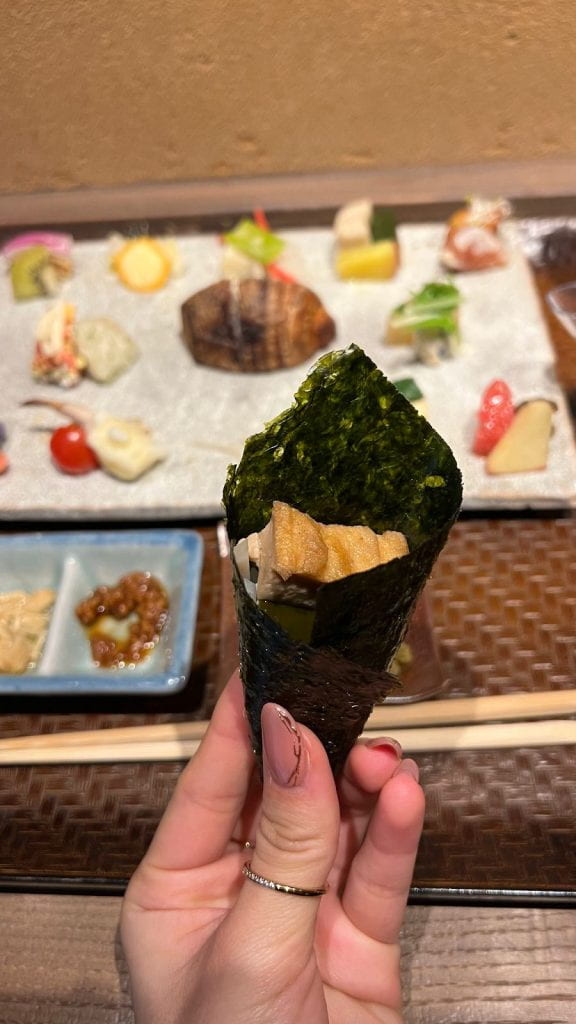

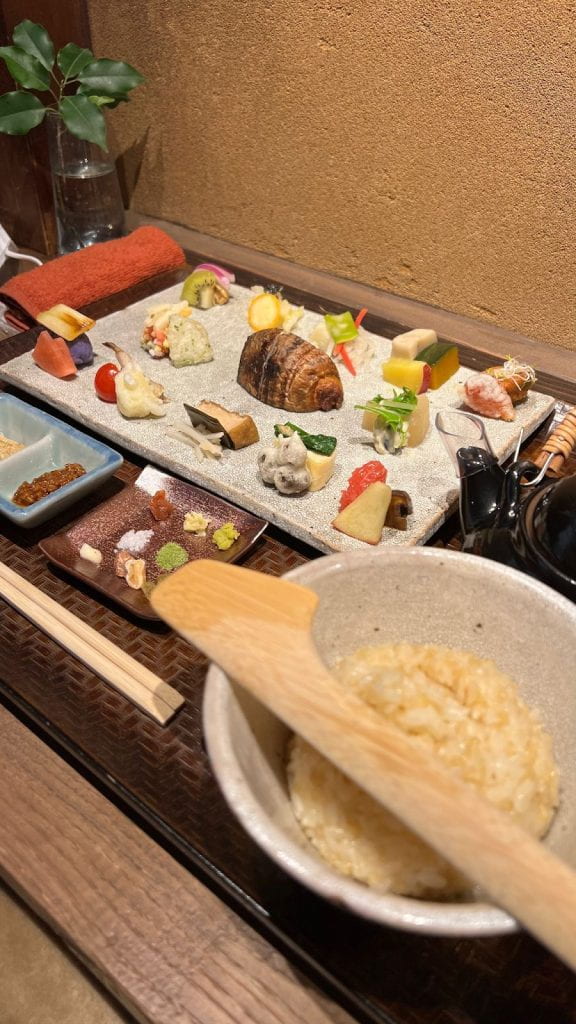
In terms of interacting more with Buddhism and the tea ceremony, I got to practice Zen prayer in one of my classes and wear a traditional kimono while participating in a guided tea ceremony. While studying what is included in the tea ceremony, I realized I did not fully understand just how beautiful the process was until experiencing it myself. Each movement in the tea ceremony is graceful and has a purpose. Watching the tea master make tea was so mesmerizing, it nearly felt like ASMR. Being able to hold each tea item in my own hands, to feel each surface and really look into the details of the design, was also amazing. The tea master was very intentional about which ceramics she chose– for example, she chose each of our teacups based on the colors each of the guests were wearing which I thought was a very warming touch.
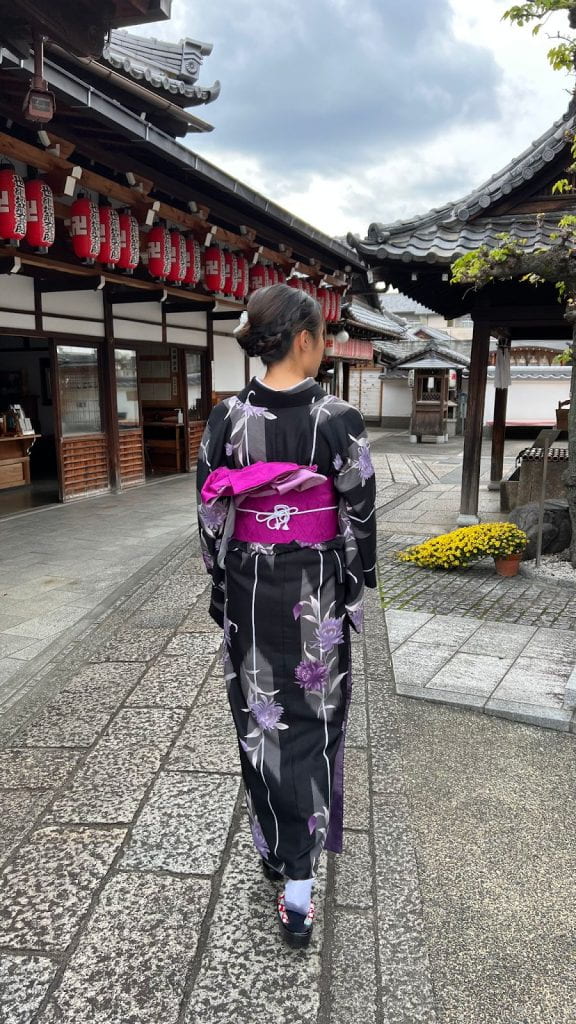
Lastly, I was able to attend a few traditional festivals, my favorite of which was the Fire Festival that took place on the Kurama Mountains. It was an intimate festival– though it was packed and crowded with Japanese people and tourists alike, the lighting of the fires and carrying of the torches to the top shrine was done by the families that lived on the mountainside for generations. There was a rhythmic drum and chanting throughout the festival that was entrancing.
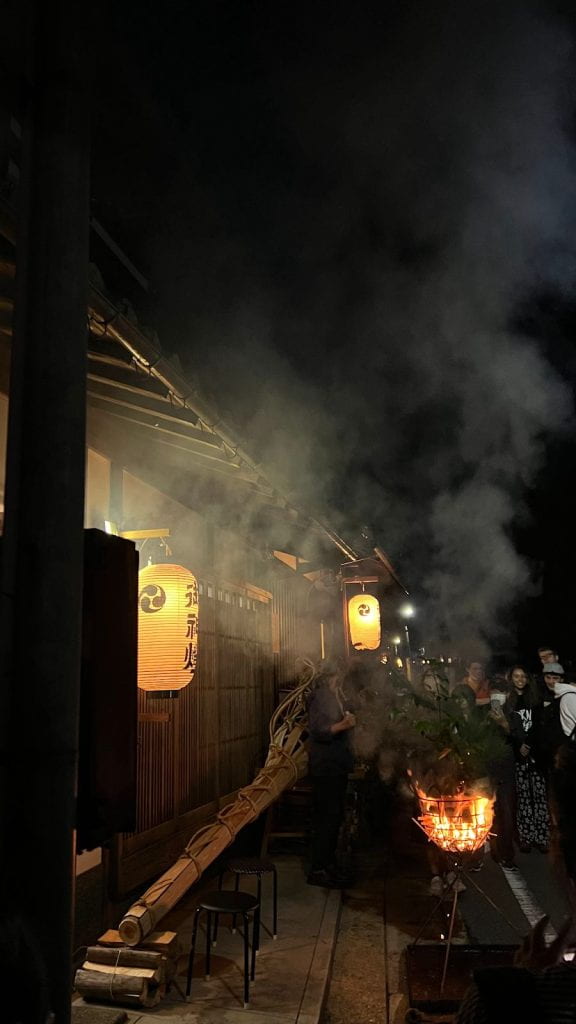
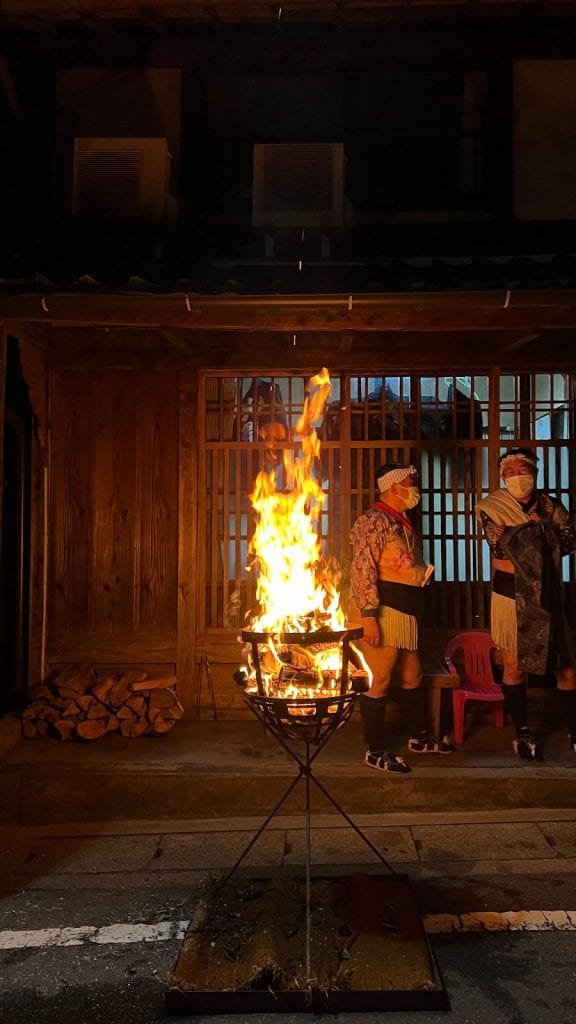
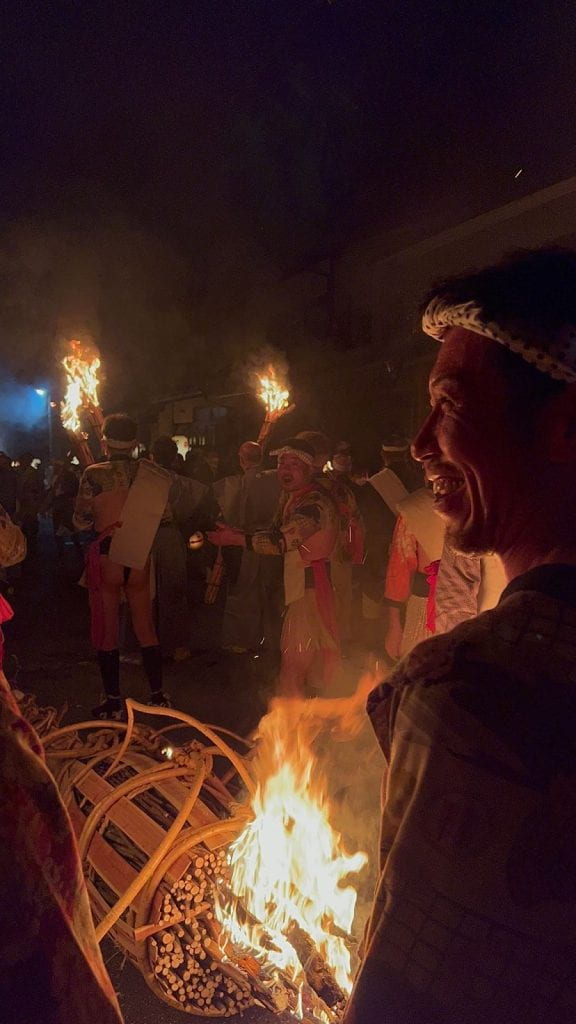
As I said in one of my previous posts, when I first arrived in Japan, time felt so slow, but looking back on it now it all seems to have gone by way too fast. Being able to explore the country and culture that I studied for a couple years was a surreal experience. To see with my own eyes the shrines and temples I saw in textbooks, to talk with people face to face whose cuisine I watched shows about, to touch the ceramics and be able to categorize them as I learned from powerpoint presentations in class, to walk the same path that I see in the travel brochures… It really was a dream come true.
I absolutely brought my findings with me back to campus after returning for the spring semester. I did a lot of projects and essays diving deeper into Japanese food culture, incorporating photos I had taken while I was in Japan. I also am keeping in touch with the friends I made there, and hopefully when I return later this summer to conduct research related to my thesis, I can reconnect with them.
Coming back from months abroad led to a surprisingly difficult adjustment back to America and Amherst life. From it, though, I’ve learned things that I will keep with me throughout the rest of my life. Adaptability is such an important attribute that isn’t easy to attain– but grow comfortable with it, and you will be a strong candidate for nearly everything. It includes compromise, understanding, confidence, and the ability to reflect on what worked and what didn’t, and growing from that.
Now that my time at Amherst overall is coming to a close, a deep bittersweetness has begun to settle in. If it weren’t for Amherst, I wouldn’t have had such an opportunity to study abroad in Japan. I wouldn’t have met those who I missed while I was gone– missing them was a sign that I had made true, genuine connections at school. Graduating means leaving once again, but this time, with the comfort of knowing that I can do it and that Amherst will always be there to support. My eyes face forward now, but I know that without a doubt, my experiences and the people I’ve met through Amherst are right behind me, cheering me on.
This brings my little blog to a close– if you’ve made it this far, thanks for coming along for the ride! I wish you the best with the rest of your time at Amherst, and though I encourage taking advantage of the study abroad opportunities, they are definitely not necessary to have a fruitful college experience. Do what excites you, what challenges you, and what fulfills your curiosity while also fueling it.